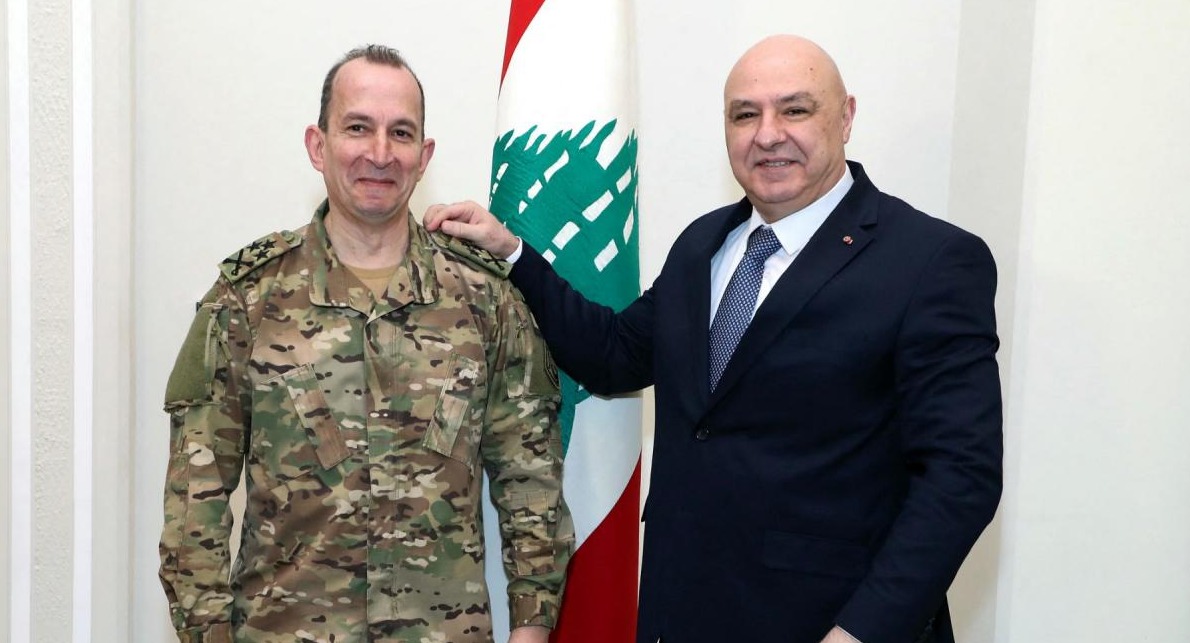The cancellation of Lebanese Army Commander General Rodolphe Haykal’s visit to Washington was surprising only in its timing, not in its motives or causes.
The surprise lay in the timing: Haykal was informed of the U.S. decision to cancel his high-level meetings while he was packing for the airport, prompting him to halt his trip at the last minute and wait for “appropriate conditions” to fulfill the American invitation.
The motives for the cancellation, however, have been accumulating since his first meeting with U.S. envoy Morgan Ortagus on April 5, a meeting described as “negative,” which led the U.S. administration to closely monitor Lebanon’s political and military performance in implementing “exclusive control of arms,” especially after the cabinet’s key decision on August 5.
Washington did not hide its criticism of what it called “slow implementation,” nor of the doctrine of “containing weapons” instead of removing them, and of the lack of firmness toward "Hezbollah"’s repeated declarations that it is rebuilding its military capabilities and combat readiness while continuing to receive financial support from Iran.
U.S. “anger” intensified after the army’s latest statement, which omitted any reference to "Hezbollah"’s responsibility in the crisis in the south and in Lebanon overall, and blamed the “Israeli enemy” alone for preventing the extension of Lebanese sovereignty to the international borders.
It is true that the phrase “Israeli enemy” is traditional in army statements in line with national rhetoric and certain legal provisions, and that the army is required to use it, yet the Lebanese political authorities used the term “State of Israel” in the maritime border demarcation agreement more than three years ago, under the direct sponsorship of Speaker Nabih Berri and Sayyed Hassan Nasrallah at the time.
All Lebanese political forces, including Berri himself—perhaps also on behalf of "Hezbollah"—have entered a sphere of acceptance of negotiations with Israel that may begin with reservations over form, whether direct or indirect, political or technical, but will inevitably lead to an addendum to the armistice agreement that cannot be escaped, somewhere between normalization and the Abraham Accords, in a region increasingly moving toward “peace by conciliation” or “peace by force.”
But the U.S. objection goes far beyond language and form; it is rooted in the core of the crisis—namely, Lebanon’s disregard of the declared deadlines for placing all weapons under state authority and the continued flow of funds to "Hezbollah", which prompted Washington to send a high-level security, financial, and political delegation to Beirut to warn against complacency in drying up funding and removing weapons.
With the U.S. position reaching an unprecedented level of political and military disapproval, Lebanon’s political authorities—president, prime minister, parliament speaker, and government—must reassess their slow, and perhaps negligent, performance and begin actual field implementation of arms control without resorting to artificial fears of discord or “civil war.”
Especially since President Joseph Aoun stated in an interview—later deleted—that "Hezbollah is finished militarily”, which removes any justification for refraining from raiding depots, tunnels, and positions to seize what remains of its weapons and ammunition, and also negates the supposed risk of confrontation being promoted in political rhetoric.
It has become clear that the crisis with Washington did not arise from what was described as “slander” or “poisoned critic” but from concrete facts and realities on the Lebanese ground.
For a global power like the United States, which handles crisis and conflict files across the world and is the only active player in this domain, it does not base its strategic positions on “slander” or petty local gossip but on precise intelligence and detailed reports produced by its networks around the globe in service of carefully-crafted grand strategies, especially in the Middle East.
Reducing Lebanon’s crisis to the level of a “slander” does not distract the world from the truth or from President Donald Trump’s regional strategy, a reality that requires senior Lebanese officials to first acknowledge it, second adhere to its implications, third implement its requirements, and fourth refrain from indulging in narratives of plotted conspiracies.
One of the lessons of political history is that every crisis carries within it an opportunity, and every shock triggers a reaction; the hope is that Lebanon’s authorities will seize this opportunity and respond positively to the shock, allowing Lebanon to regain its long-promised path toward recovery.
But if the authorities fail to seize the opportunity and learn from the shock, Lebanon is likely headed toward a triple shutdown: political, financial, and military.
And at that point, it will be useless to say: “Had we only known the issue was strategic, not just a ‘slander’!”
Please post your comments on:
[email protected]
 Politics
Politics







